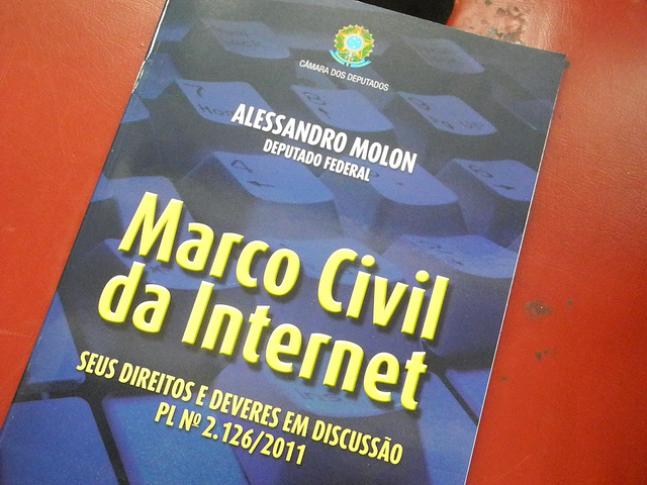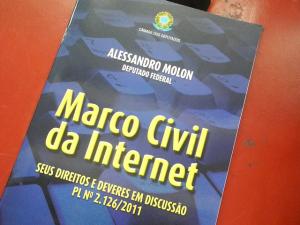
 It’s short, but it matters. In no more words than a Twitter message, Brazil made many internet rights activists happy in September. It’s worth revisiting this message and putting in context.
It’s short, but it matters. In no more words than a Twitter message, Brazil made many internet rights activists happy in September. It’s worth revisiting this message and putting in context.
“Consider freedom of expression concerns when drafting cybercrime legislation.” Yes, and? This phrase was pronounced in May 2012 at the UN. Delegates from a small European country have agreed to draw on ideas first exposed by civil society groups, such as the Association for Progressive Communications (APC), NUPEF and others at the UN’s Universal Periodic Review. The periodic review is a process in which every country’s track record on human rights is scrutinized by other countries.
In that forum, Estonian delegates made the recommendation to Brazil to consider freedom of expression issues when coming up with a new legislation on cybercrime. Last September, Brazil supported this legislation, thereby committing to keeping freedom of expression a top priority in any forthcoming cybercrime legislation.
The accepted recommendation will mean that civil society and other countries at the UN will be able to monitor Brazil’s next moves on cybercrime law and hold its lawmakers accountable to this straight-forward pledge.
Many internet activists applauded Brazil’s decision to accept the recommendation. It must be mentioned that Brazil’s support is in line with a bill now pending for approval at the National Congress of Brazil. The bill is called “Marco Civil da Internet no Brasil – a Brazilian Civil Rights Framework for the Internet.” Lauded for its participatory process and progressive content, “Marco Civil further establishes the legal framework for rights and responsibilities of all stakeholders in the web, including government.” It also establishes fundamental principles, values and guarantees in a way never seen before in Brazil.
Interestingly, Marco Civil gives freedom of expression a central spot. This is exactly where one can draw a parallel between Marco Civil and the UPR recommendation 190.130. Marco Civil states that freedom of expression is essential for the democratic usage of the Internet. Thus, Marco Civil guarantees freedom of expression as one of its fundamental principles. If anything, this consistent approach by Brazil is a first step in the advancement and promotion of this fundamental human right.
Out of 170 recommendations at UPR 13, Brazil supported 159 fully, 10 in part and rejected 1.